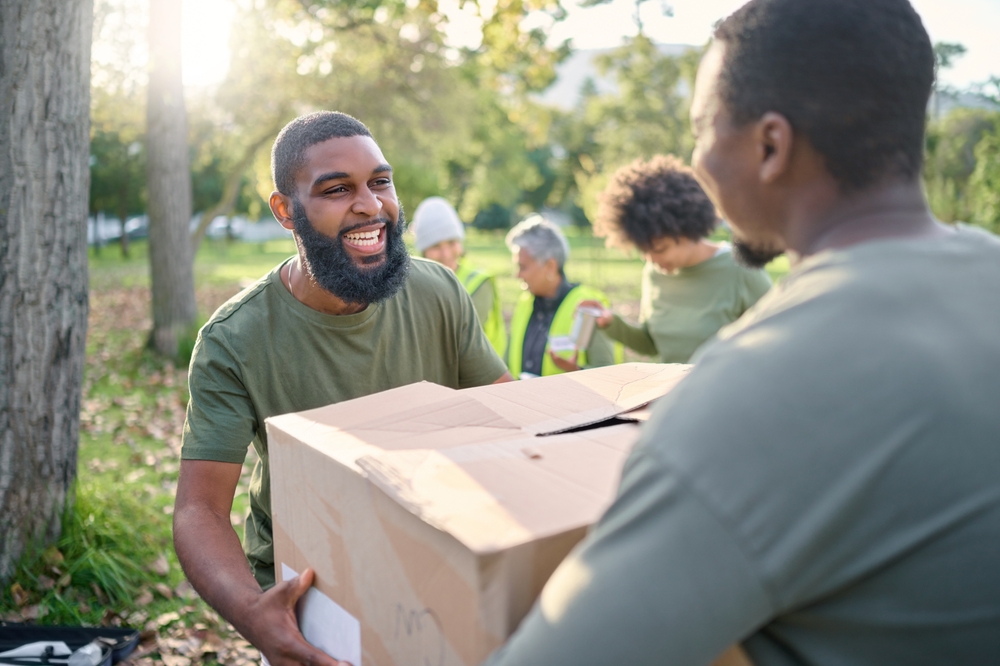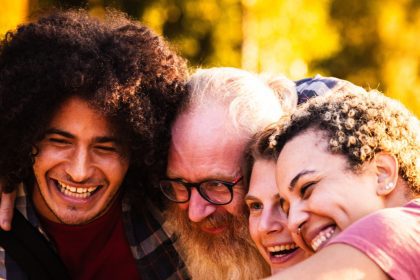Feeling connected to your community isn’t just about creating friendships or expanding your social network; it plays a pivotal role in enhancing the quality of life and may even contribute to living longer. Research shows that being part of a thriving community impacts both physical and mental well-being, providing emotional support and fostering a sense of purpose. In today’s fast-paced world, maintaining these connections has become more essential than ever. So, how does staying connected to your community help extend your life? Let’s explore how community ties can offer more than just companionship — they can actually be life-changing.
The power of community in reducing stress
One of the most significant benefits of staying connected to your community is its ability to reduce stress. Chronic stress is widely regarded as a contributing factor to many health conditions — from heart disease to depression. When you’re part of a supportive community, whether it’s your neighborhood, a church group or an online network, you gain access to social and emotional outlets that help manage stress. These connections allow for shared experiences, mutual support and the knowledge that you aren’t alone in facing life’s challenges.
Having a network of people who understand your struggles provides a buffer against the stressors that come with everyday life. This social safety net has been proven to lower cortisol levels — which can prevent many stress-related illnesses. Additionally, communities offer an environment where laughter, relaxation and shared joy are common — all key elements in promoting long-term well-being.
Community and mental health
Mental health and emotional stability are deeply intertwined with your sense of belonging. Being part of a community gives you access to a “healing circle,” where people can share their emotional experiences and find solace in knowing that others face similar challenges. Studies suggest that those who are isolated are more prone to anxiety, depression and loneliness — all of which can shorten life expectancy.
In contrast, being surrounded by people who care about your well-being helps alleviate these feelings. This sense of connectedness is vital to mental health, promoting feelings of joy, fulfillment and belonging. Whether through conversations, shared activities or simple gestures of kindness, these interactions help fortify emotional resilience.
How physical health improves with community ties
While mental health is a significant factor, staying connected to your community also offers substantial physical health benefits. Engaging with others encourages physical activity — whether it’s through community sports, walking groups or simply being out and about. Social ties encourage people to get moving, which is essential for maintaining cardiovascular health, muscle strength and overall vitality.
Studies have shown that those with robust community ties are more likely to engage in healthy behaviors such as exercising regularly and eating nutritious foods. It’s often the encouragement and motivation from others that pushes individuals to make healthier lifestyle choices. Additionally, peer influence can play a critical role in staying on track with wellness goals — leading to long-term habits that promote a longer life.
Lowering the risk of chronic illnesses
In communities where people feel closely knit, individuals tend to watch out for one another — which can translate into better health outcomes. Whether it’s a neighbor reminding you to go for your annual check-up or a friend encouraging you to quit smoking, these subtle forms of encouragement can make a profound difference. Regular social interactions can also decrease the risk of chronic illnesses such as diabetes, high blood pressure and heart disease — all of which are linked to lifestyle choices.
A sense of accountability within your community often fosters better health care practices, including keeping track of medication, attending appointments and staying informed about health-related issues. This collective responsibility not only improves individual health outcomes but also creates a culture of wellness that benefits everyone involved.
How community adds meaning to life
Humans have an intrinsic need for belonging and purpose. When you feel connected to your community, it gives your life deeper meaning. Whether you’re volunteering, attending social gatherings or participating in group activities — these connections provide a sense of accomplishment and fulfillment.
Studies show that people who feel a sense of purpose live longer, healthier lives. Purpose drives behavior, motivating individuals to engage in activities that are not only enjoyable but beneficial for their long-term health. Whether it’s mentoring younger community members, helping organize events or offering emotional support to those in need, these acts of service foster personal growth and contribute to a longer, more fulfilling life.
The ripple effect of kindness
One of the beautiful aspects of being part of a community is the ripple effect that small acts of kindness can have. When you’re connected to others, you’re more likely to give and receive support, creating a cycle of generosity that benefits everyone involved. Whether it’s offering a helping hand or receiving encouragement during tough times, these gestures not only improve mood but also promote overall well-being.
Research indicates that people who regularly engage in acts of kindness — whether as givers or receivers — tend to live longer. The joy and satisfaction that come from these interactions have a direct impact on mental and physical health — reinforcing the importance of staying connected.
Creating lasting bonds through shared experiences
Another reason staying connected helps you live longer is the strength of the bonds formed through shared experiences. Life’s milestones — whether joyous or challenging — are often more meaningful when shared with others. Celebrating successes and offering support during tough times strengthen these bonds, making life’s journey a little easier.
Shared experiences create memories and emotional ties that build resilience. These connections offer comfort and a sense of security, helping individuals navigate difficult periods in life. Having a strong social network to rely on increases emotional stability and offers a foundation for growth and healing.
Building intergenerational connections
One often overlooked benefit of staying connected to a community is the opportunity to form intergenerational relationships. These bonds can provide different perspectives on life, fostering mutual respect and understanding between age groups. Whether it’s the wisdom passed down from older generations or the energy and fresh ideas from younger members — these relationships enrich everyone involved.
In fact, communities that foster intergenerational connections tend to have better overall health outcomes. Older adults benefit from the engagement and sense of purpose that comes from mentoring younger members, while younger individuals gain valuable insights and emotional support. These cross-generational ties provide both practical support and emotional nourishment, contributing to longer, healthier lives.
The life-saving power of community
Staying connected to your community is more than just a social advantage; it’s a vital component of living a longer, healthier life. From reducing stress and improving mental health to encouraging physical activity and fostering a sense of purpose, the benefits of community are far-reaching. As humans, we thrive on connection, and the strength of our social ties has the power to shape our well-being in profound ways.
By investing time and energy into building and maintaining these relationships, you can not only improve your quality of life but potentially add years to it. In a world that often prioritizes individualism, it’s essential to remember that true health and happiness often lie in the collective strength of our communities. So, the next time you’re invited to a neighborhood event or asked to join a community group, consider the long-term benefits — your health and longevity may depend on it.
This story was created using AI technology.










